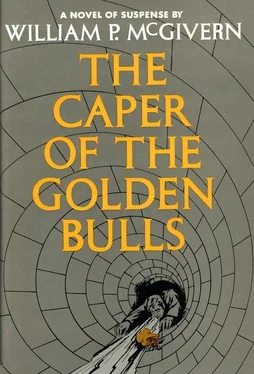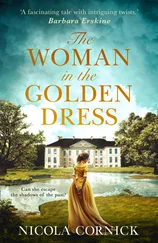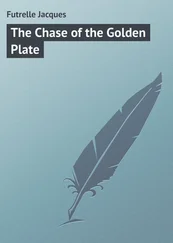“I believe he knows,” Grace said with a gentle smile. “But there’s something else you might do for him.”
“Oh, I’d do anything for Peter.”
Peter was looking at his watch. “All right, chums, let’s get with it.”
The Irishman stopped in the doorway and looked back enviously at Blake and Tonelli. “Peter, you’re a selfish bastard. Wouldn’t you even wait one minute for an old pal?”
“Come on,” Peter said sharply.
For the church bells were already sounding five, and a dangerous dawn was spreading slowly down from the hills to cover the old town with a light the colour of pearls.
But it was not yet too late...
Grace’s voice sounded suddenly in his ear, a tense, metallic whisper.
“Get ready, Peter. They’re opening the gate. The bulls are running.”
Peter gripped the handle of the plunger, and looked at Bendell and the Irishman. “Here we go, lads.”
“Now, Peter! Now.”
Peter rammed the plunger home, and two explosions shook the air, their echoes blending and converging instantly in one great blast; the first roared over their heads like long freight trains rumbling towards the sky, while the second, compact and contained, sounded deep within the shaft they were driving through the wall to the bank. A jet of smoke and dust shot into the basement. Splinters of rock whistled and whined about their ears.
The Irishman and Bendell, carrying short pickaxes, ran through the eddying layers of smoke, and disappeared into the mouth of the tunnel.
Francois and Peter followed with a tool kit and valises. Another explosion sounded above the city, as the bulls began their last race through the barricaded streets. In the narrow shaft, they could hear the muffled sound of their hooves, the distant roaring of the crowds.
The Irishman’s pick rang against crumbling brick and stone.
“Pay dirt, lad,” he called back to Peter.
They pulled aside the last bricks with their hands, chopped through la things and plaster, and crawled, one by one, into the dark basement of the bank. Peter stood perfectly still, a hand on the Irishman’s shoulders, and cut the blackness around him with the beam of his flashlight. They were in the records storage area, a vast, low-ceilinged chamber which ran parallel to the ancient boiler room and cellars on the ground floor of the bank. Wooden file cabinets stood in rows higher than their heads, and the walls were shelved and lined with musty ledgers and lock-boxes bound with metal strips.
Peter could taste the dryness on the air; it was as if the very act of their breathing had stirred dust motes lying undisturbed for decades.
The silence was complete. Peter examined it in layers, letting his ears test first the quiet of the storage area, then the adjoining cellars and boiler rooms, and finally the vault floor above their heads.
The only sound he heard was Francois’s erratic breathing. Peter squeezed the Irishman’s shoulders, and moved off swiftly towards the front of the bank, following the bright, narrow path traced by his flashlight. The door sealing the storage area was tall and massive, patterned with squares of deeply carved wood. It was very old, and so was its lock, and Bendell solved the problems of its tumblers in seconds with a thin screwdriver wrapped in a handkerchief. Peter let the door swing slowly open of its own weight, and peered through a crack into the foyer of the bank.
The foyer extended the full width of the building, abutting directly on to the street, its tall arched windows and doors laced with grille work and covered now with drawn green shades. The side walls of smooth, veined marble were flanked by tubs of dark green plants, strange and exotic in the gloomy darkness, and they gave off an earthy, verdant odour that was jarringly alive after the dry, dead air of the records room.
From the middle of the foyer a broad marble staircase rose to the second floor of the bank, eighteen worn steps with brass handrails on either side of them.
On the sidewalk, in front of the massive double doors, stood a detail of police; Peter could see their figures silhouetted against the long green shades.
Peter opened the door enough to slip through it. With an eye on the double doors at the entrance of the bank, he ran at a half-crouch to the foot of the stairs. He sat on the first step, a valise and tool kit in his lap, squeezed himself close to the hand-railing, and went up the stairs backward, easing himself from one step to the next, like a child who hadn’t learned to walk, but keeping his eyes fixed all the while on the silhouetted figures of the police in the street. Francois came after him, and then Bendell and the Irishman, and there was no sound at all but the rough whisper of heavy trousers on cold marble.
On the second floor, safe from view, Peter stopped again to test the silence. Nothing moved, nothing stirred, except dust motes dancing in the dim light. There were faint traffic noises, and the distant noise of the fiesta from the street, but the air around them was as still and quiet as that in a tomb.
The second floor of the bank was vast and dim. The murky sunlight that filtered through the green shades on the windows coated everything with a translucent gloss; the rows of empty desks and ancient typewriters, the shining marble flooring and the great steel door of the vault, all shimmered with pale marine illuminations.
In the heavy, oppressive silence, an old-fashioned wall clock ticked solemnly and sturdily, its pendulum swinging with a sense of inevitability behind a glass door brightened with golden lettering advertising an insurance company. Peter flicked a glance at his Patek-Phillipe. The wall clock was slow, by almost forty-five seconds.
“Let’s hit it,” he said.
They hurried to the vault and commenced work with an apparently effortless precision and economy. Peter flipped open the two valises, while Bendell spread a long and narrow strip of chamois-cloth, arranging drills and bits and braces in the order they might need them, his hands moving as deftly and precisely as those of a surgeon at an operating table. The diamond teeth that ringed the cutter bar gleamed in the dim light. Peter ran his fingertips over them appraisingly, and studied the massive door of the vault.
“It’s a tricky brute,” he said quietly to the Irishman. “If you smash the main tumbler links, they trip the auxiliaries.”
The Irishman nodded. “True, lad. And if you smash those auxiliary bastards, they set off the emergency system.”
“You must work backward,” Bendell said. “First the emergencies. Then the auxiliaries. The main tumbler links last.”
“Don’t teach your grandfather how to suck eggs,” the Irishman said, with a hard grin. He rubbed his hands together for a few seconds, and picked up a punch and drill. “How much time left, Peter?”
“One hour and forty-five minutes.”
“It won’t be a milk run, lad. Let’s get cracking.”
“Hold it one second.” Peter turned to Francois. “Let’s have it. This is as far as we go without it.”
“But of course.” Francois opened his jacket, removed the can of film from under his arm, and gave it to Peter with an ironical little smile.
“I’m satisfied with our bargain. Why shouldn’t I be?”
Peter inspected the impress of his ring in the candle wax that smoothly sealed the locks and catches on the can of film.
“Okay, Paddy, hit it,” he said, and put the film in his tool kit.
The Irishman began drilling. Peter went quickly through the gloomy night to the front windows of the bank. He moved a shade a half-inch with his fingertip, and peered out into an empty street shining with thin sunlight. This was the business district of the old town, and its buildings were sturdy and respectable, with barred windows and brass name-plates studded to the walls beside their doorways.
Читать дальше












